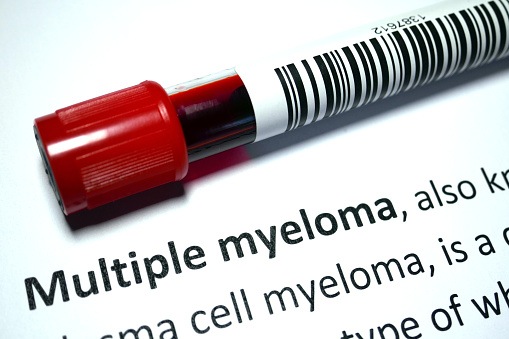
The risk of venous thromboembolism (VTE) is not statistically different for rheumatoid arthritis (RA) patients treated with tofacitinib compared to patients using a tumor necrosis factor (TNF) inhibitor, according to a study presented at the annual meeting of the American College of Rheumatology.
Researchers collected data from the Truven Marketscan (2012-2016) and Medicare (parts A, B, and D, 2012-2015) databases for RA patients aged ≥ 18 years. There were 34,074 RA patients from the Truven database (mean age, 50 years), of whom 5.6% were tofacitinib initiators, and 17,086 Medicare patients (mean age, 71 years), of whom 5.8% were tofacitinib initiators. Tofacitinib initiators were more likely to have used at least three non-biologic disease modifying agents and glucocorticoids at the start of the study, meaning this group had “more active or longer duration [of] RA.” The primary outcome was VTE, which study authors defined as “a composite of pulmonary embolism or deep vein thrombosis diagnosis in inpatient claims, on as treated basis.”
More than 100 experts including hematologists, clinicians in other specialties, and patient representatives partnered with ASH to synthesize the research and develop new clinical practice guidelines for VTE. Find them at https://t.co/LmffcOZzSq. #ASHGuidelines pic.twitter.com/2W4JiTkbl6
— ASH (@ASH_hematology) November 27, 2018
Incidence rates/100 person-years for the Truven cohort in tofacitinib and TNF-inhibitor patients were 0.60 and 0.34, respectively, and in the Medicare cohort were 1.12 and 0.92, respectively. In propensity score-adjusted analyses, there was no significant differences in risk of VTE for tofacitinib and TNF-inhibitor patients for both groups.
While tofacitinib patients had a numerically higher VTE risk than TNF-inhibitor patients, researchers said the difference did not have statistical significance.
Rheumatoid #arthritis patients treated with tofacitinib had no significantly increased incidence of hospitalization for venous thromboembolism. #VTE #Cardiology
Read more at: https://t.co/ZqJEiOraxI
— MDedge Cardiology (@MDedgeCardio) November 24, 2018
“Although residual confounding is possible and the precision of estimates was limited due to a small event count, these results are helpful in ruling out the possibility of a large increase in the risk of VTE with tofacitinib and provide preliminary evidence regarding the safety of this JAK inhibitor agent with respect to VTE risk,” the researchers wrote.
Venous Thromboembolism in Patients with Sarcoma: A Retrospective Study
Study Forecasts Increase in Insulin Use for Type 2 Diabetes by 2030
Certain Diabetes Medications Raise Risk of Amputation
Source: American College of Rheumatology







 © 2025 Mashup Media, LLC, a Formedics Property. All Rights Reserved.
© 2025 Mashup Media, LLC, a Formedics Property. All Rights Reserved.